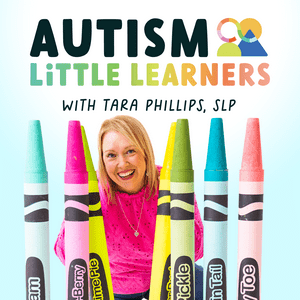Winter often brings changes in schedules, energy levels, and tolerance — and when the world outside the classroom feels less predictable, nervous systems feel it. This episode focuses on supporting regulation and emotional safety when routines feel harder to maintain.
In this episode, we explore how disrupted routines, stress outside of school, and unpredictable changes can impact regulation for autistic children.
So often, these moments are framed as behavior issues or skill challenges. But when we shift toward regulation, predictability, and connection, we begin to see changes in:
regulation
engagement
communication
emotional safety
This conversation is grounded in real classrooms and real constraints, with practical strategies educators and caregivers can use right away.
In This Episode, You'll Learn
Why regulation is the foundation for learning and communication
How disrupted routines and outside stressors often show up in children's nervous systems first
What co-regulation really means and why it comes before self-regulation
How predictable routines reduce cognitive load and support emotional safety
Practical classroom strategies using visuals, sensory supports, and calming sequences
Why behavior is often communication rather than defiance or choice
Key Takeaways
Regulation supports learning
Predictability creates safety
Co-regulation happens through presence, not pressure
Access matters more than performance
Small, consistent shifts matter more than perfection
Support works best when it fits real classrooms
Try This
Choose one routine or moment this week to focus on.
Start the day with connection before demands
Use a visual schedule or change card to support predictability
Model calm through your voice, body, and presence
Try one co-regulation strategy consistently
Notice regulation and engagement rather than output
You don't need to do everything at once for change to happen.
Related Resources & Links
Calming Kit (visual regulation supports)
Visual Schedules for Transitions
Social Stories for Changes, Taking Breaks, and Sensory Support
Mindfulness for Neurodivergent Learners (book referenced in the episode)
If supporting regulation during times of change feels challenging, you're not alone.
There are tools and supports designed to help you create predictability, safety, and connection in real classrooms, without adding pressure.


